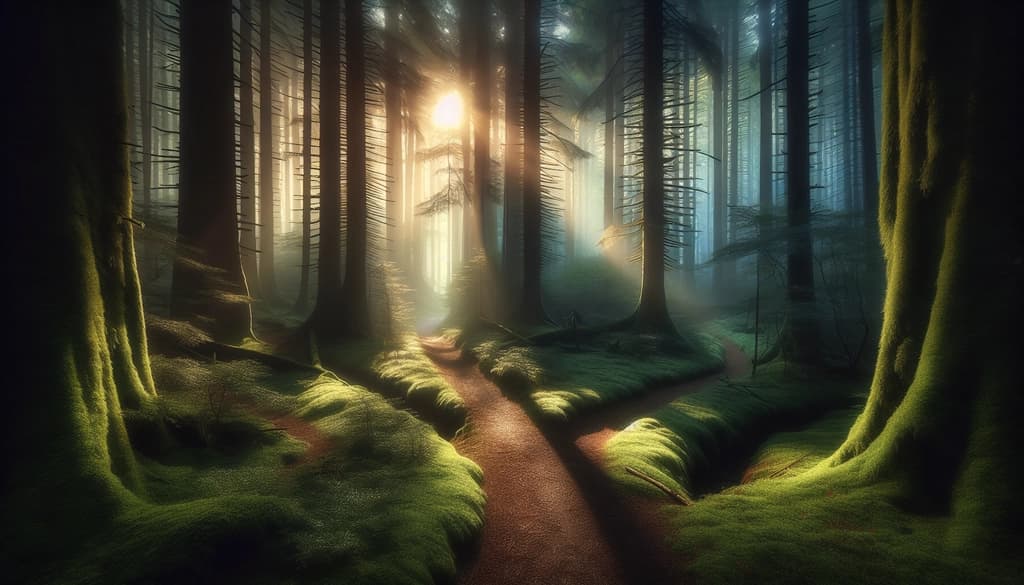Karma and Dharma: What’s the Difference and Why Does It Matter?

There comes a time, usually in the hush of evening or the pause between plans, when questions root themselves gently in the heart. Is this choice truly mine? Are my days shaped by the seeds I plant, or by the quiet pull of something larger?
Both karma and dharma travel with us, like two streams weaving side by side, each offering a different note to the song of our lives. When confusion arises, or a crossroads appears, knowing their difference can bring a clearer sense of direction and peace.
What Is Karma? Actions, Consequences, and the Life You Weave
Karma, an old word echoing through many traditions, speaks to the dance of action and consequence. It isn’t just fate, nor simple reward and punishment. It is the living web spun by what we choose, say, or even think — each breath, each gesture quietly planting its own tomorrow. If you want to explore more deeply, you may find clarity in this What is karma article, which unpacks karma as something living, not fixed.
- Karma is often described as the law of cause and effect.
- Every action — kind or unkind, generous or selfish — ripples outward, shaping our experience.
- Karma is not destiny, but a subtle current responding to personal choices over time.
What Is Dharma? Your True Path and Quiet Calling
Dharma is softer and more inward, like the steady pull of roots beneath a tree. It is both the natural order of things and your own invitation to live in harmony with what matters most — unique for each life, yet felt by all. If the heart wants to go deeper, explore this gentle illumination of What is dharma.
- Dharma can mean right living, honesty, or a purposeful calling.
- Everyone’s dharma differs: it may be kindness, creativity, healing, or brave honesty.
- Dharma asks: What feels true in my bones today? What am I called to offer the world?
For those seeking spiritual direction or wondering about the larger meaning behind our days, another pathway worth walking is to contemplate what is life purpose spiritually. Sometimes, the call of dharma merges with life purpose, or runs alongside it, like streams through the same valley.
Karma versus Dharma: One Shapes, One Aligns
If karma is the wind that shifts with our actions, dharma is the forest itself — the deeper rhythm of growth, rest, and honest return. Our karma accumulates with every step, while dharma is the invitation to walk each path in a way that honors our truest self. You may have wondered about fate, or the differences between dharma and destiny; this question is explored with more nuance in Dharma vs destiny, casting light on the many ways we walk our chosen ground.
- Karma: The seeds you plant and the fruit you will gather.
- Dharma: The soil, sunlight, and inner wisdom guiding what and how you plant.
- Karma answers: “What have I done?” Dharma wonders: “Who am I becoming?”
Are Karma and Fate the Same?
Sometimes, karma is mistaken for fate — as though all is predetermined and fixed. But karma, in truth, invites you back to presence: every choice renews the path, every kindness reshapes your map. Fate may seem written in stars, but karma is the pen still in your hand.
If you are longing to uncover your own direction or to feel the heart of your unique calling, treat yourself to the gentle reflection within how to discover your path, and experiment with which steps feel most alive for you.
A Breath for Karmic Relationships
Some bonds feel woven from another time, filled with lessons or even longing. Karmic relationships, as many traditions tell, are the mirrors that help us see where growth and healing are ready to unfurl. Each meeting, each story, becomes a teacher — inviting us to notice how we relate, let go, or begin anew.
- Notice what old patterns repeat in your relationships.
- Ask gently: What am I meant to learn from this connection?
- Offer forgiveness — to yourself and others — as a way to release old karma.
In the hush of dusk or with the dawn chorus outside your window, listen for the quiet difference between karma and dharma. One is the echo of every action; the other, the ground of meaning beneath your feet. Both walk with you, always—each step, a chance to begin again.
For those feeling called to a deeper sense of duty or alignment, the richness of meaning of sacred duty and the gentle practices found in how to align with your dharma can help you move a little closer to the ground beneath your feet.
Let today’s choices become tomorrow’s gentle garden. Breathe with what’s here—your path is always unfolding.
